
| Chairperson | Rajnath Singh |
| Parliamentary Chairperson | L. K. Advani |
| Leader in Lok Sabha | Sushma Swaraj (Leader of Opposition) |
| Leader in Rajya Sabha | Arun Jaitley (Leader of Opposition) |
| Prime Ministerial Candidate | Narendra Modi |
| Former Prime Minster(s) | Atal Bihari Vajpayee |
| Founded | December 1980 |
| Preceded by | Bharatiya Jana Sangh |
| Headquarters | 11 Ashoka Road, New Delhi, 110001 |
| Student wing | Akhil Bharatiya Vidyarthi Parishad |
| Youth wing | Bharatiya Janata Yuva Morcha |
| Women's wing | BJP Mahila Morcha |
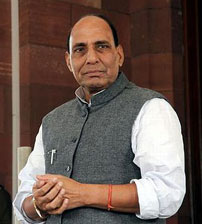
Syama Prasad Mookerjee (1901-1953) : Founder of the Bharatiya Jana Sangh
The BJP is the successor party of the BJS, which merged itself into the Janata Party in 1977. The BJP was formed as a separate party in 1980 after internal differences in the Janata Party resulted in the collapse of the Janata government in 1979.
A brief life-sketch
On hearing of her son’s untimely death, Dr. Mookerjee's mother Jogmaya Debi exclaimed:
"Proudly do I feel that the loss of my son is a loss to Mother India!"
This brave son of India was born on July 6, 1901, to an illustrious family. His father Sir Asutosh was widely known in Bengal as an educationist and public intellectual. Graduating from Calcutta University, Dr. Mookerjee became a fellow of the Senate in 1923. He enrolled as an advocate in Calcutta High Court in 1924 after his father's death. Subsequently he left for England in 1926, being called to the bar from Lincoln's Inn in 1927. At the age of 33, he became the world's youngest Vice-Chancellor at the Calcutta University and held the office till 1938. During his tenure, he introduced a number of constructive reforms and was active in the Asiatic Society as well as was a member of the Court and the Council of the Indian Institute of Science, Bangalore and Chairman of the Inter-University of Board.
Dr. Mookerjee was vociferous in the cause of the integration of Jammu and Kashmir with the rest of India. He termed the arrangement under Article 370 as Balkanisation of India. The Bharatiya Jana Sangh, along with the Hindu Mahasabha and the Ram Rajya Parishad, launched a satyagraha to have pernicious provisions related to Article 370 removed. Mookerjee went to visit Kashmir in 1953 and was arrested on May 11, 1953, while crossing into the state and breaching the infamous Permit System. He died while under arrest and held in difficult conditions, passing away on June 23, 1953.
A veteran politician, he was respected by his friends and foes alike for his knowledge and forthrightness. He outshone most Ministers in the cabinet with his erudition and learning. India lost a great son much too early.

| Chairperson | Sonia Gandhi |
| Parliamentary Chairperson | Sonia Gandhi |
| Leader in Lok Sabha | Sushilkumar Shinde |
| Leader in Rajya Sabha | Manmohan Singh (Prime Minister) |
| Founded | December 28, 1885; 128 years ago |
| Headquarters | 24, Akbar Road, New Delhi |
| Student wing | National Students Union of India |
| Youth wing | Indian Youth Congress |
| Women's wing | Mahila Congress |

History of Indian National Congress
The Indian National Congress (abbreviated INC, and commonly known as the Congress) is one of the two major political parties in India, the other being the Bharatiya Janata Party (BJP). It is the largest and one of the oldest democratically-operating political parties in the world. The party's modern liberal platform is largely considered to be on the centre-left of the Indian political spectrum in contrast to the right-wing Hindu nationalist Bharatiya Janata Party.
The Organisation was founded in 1885 by Allan Octavian Hume, Dadabhai Naoroji, Dinshaw Wacha, Womesh Chandra Bonnerjee, Surendranath Banerjee, Monomohun Ghose, Mahadev Govind Ranade and William Wedderburn. Hume was also a prominent member of the Theosophical Society. In the following decades, the Indian National Congress became a pivotal participant in the Indian Independence Movement, with over 15 million members and over 70 million participants in its struggle against British colonial rule in India. After independence in 1947, it became the nation's dominant political party; in the 15 general elections since independence, the Congress has won an outright majority on six occasions, and has led the ruling coalition a further four times, heading the central government for a total of 49 years. It has been led by the Nehru-Gandhi family for the most part, with major challenges for party leadership emerging only since 2010
In the most recent general elections in 2009, the Congress emerged as the single largest party in the Lok Sabha, with 206 of its candidates getting elected to the 543-member house. Consequently it, as the leader of a coalition of political parties called the United Progressive Alliance (UPA), was able to gain a majority and form the government.

| Chairperson | Mayawati |
| Secretary-General | Satish Chandra Mishra |
| Leader in Lok Sabha | Rajesh Verma |
| Leader in Rajya Sabha | Mayawati |
| Founded | 1984 |
| Headquarters | 12, Gurudwara Rakabganj Road, New Delhi - 110001 |
| Student wing | Bahujan Samaj Student's Forum |
| Youth wing | BSP Yuva Morcha |
| Ideology | Dalit Socialism Secularism Social Engineering |

History of Bahujan Samaj Party
The party was founded in 1983 by Kanshi Ram . Due to his deteriorating health in the 1990s, former school teacher Mayawati became the party's leader. The party's power grew quickly with seats in the Uttar Pradesh Legislative Assembly and India's Lower House of Parliament. In 1993, following the assembly elections, Mayawati formed a coalition with Samajwadi Party President Mulayam Yadav as Chief Minister. In mid-1995, she withdrew support from his government, which led to a major incident where Mulayam Singh Yadav was accused of keeping her party legislators hostage to try to break her party. Since this, they have regarded each other publicly as chief rivals. Mayawati then sought the support of the Bharatiya Janata Party (BJP) to become Chief Minister on June 3, 1995. In October 1995 the BJP withdrew support to her and fresh elections were called after President's Rule.Recently out side support given to UPA-2 for current government.
The Pali word Bahujan is popularly found in the literature of Buddhism. Lord Buddha used this word to guide his disciples to work for the "Bahujan Hitay Bahujan Sukhay" (Meaning: Benefit and prosperity of majority people). Another meaning of the word Bahujan is people in majority. The BSP has historically drawn a loyal base of voters from India's lowest caste (Dalit). It has attempted to grow nationally as well, but has met limited success so far. Its current majority government in Uttar Pradesh was in large part due to a reach-out towards other castes, even some members of the upper castes.
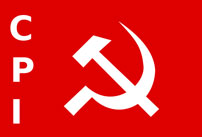
| Secretary-General | S. Sudhakar Reddy |
| Founded | December 26, 1925; 88 years ago |
| Headquarters | New Delhi, India |
| Student wing | All India Students Federation |
| Youth wing | All India Youth Federation |
| Women's wing | National Federation of Indian Women |
| Labour wing | All India Trade Union Congress and Bharatiya Khet Mazdoor Union |
| Peasant's wing | All India Kisan Sabha (Ajoy Bhavan) |
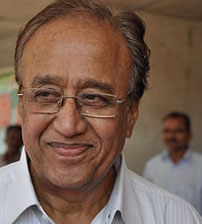
Presents of Communist Party of India
CPI is recognised by the Election Commission of India as a 'National Party'. To date, CPI happens to be the only national political party from India to have contested all the general elections using the same electoral symbol.
On the national level they supported the Indian National Congress-led United Progressive Alliance government, but without taking part in it. The party is part of a coalition of leftist and communist parties known in the national media as the Left Front. Upon attaining power in May 2004, the United Progressive Alliance formulated a programme of action known as the Common Minimum Programme. The Left bases its support to the UPA on strict adherence to it. Provisions of the CMP mentions to discontinue disinvestment, massive social sector outlays and an independent foreign policy.
On 8 July 2008, Prakash Karat announced that left front is withdrawing its support over the decision by the government to go ahead on the United States-India Peaceful Atomic Energy Cooperation Act. The left front had been a staunch advocate of not proceeding with this deal citing national interests.
In West Bengal it participates in the Left Front. It also participated in the state government in Manipur. In Kerala the party is part of Left Democratic Front. In Tripura the party is a partner of the governing Left Front, having a minister. In Tamil Nadu it is part of the Progressive Democratic Alliance. It is involved in the Left Democratic Front in Maharashtra.
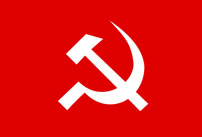
| Secretary-General | Prakash Karat |
| Leader in Lok Sabha | Basudev Acharia |
| Leader in Rajya Sabha | Sitaram Yechury |
| Founded | 1964 |
| Headquarters | Gole Market, New Delhi, India |
| Student wing | Students Federation of India |
| Youth wing | Democratic Youth Federation of India |
| Women's wing | All India Democratic Women's Association |
History of Communist Party of India (Marxist)
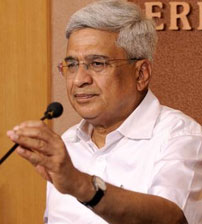
The CPI(M) was formed at the Seventh Congress of the Communist Party of India held in Calcutta from October 31 to November 7, 1964. The CPI(M) was born in the struggle against revisionism and sectarianism in the communist movement at the international and national level, in order to defend the scientific and revolutionary tenets of Marxism-Leninism and its appropriate application in the concrete Indian conditions. The CPI(M) combines the fine heritage of the anti-imperialist struggle and the revolutionary legacy of the undivided Communist Party which was founded in 1920. Over the years, the Party has emerged as the foremost Left force in the country.
The CPI(M) has grown steadily since its formation in 1964. The membership of the Party, which was 118,683 at the time of its formation, has grown to 10,44,833 in 2011. The Party has sought to independently apply Marxism-Leninism to Indian conditions and to work out the strategy and tactics for a people's democratic revolution, which can transform the lives of the Indian people. The CPI(M) is engaged in bringing about this basic transformation by carrying out a programme to end imperialist, big bourgeois and landlord exploitation. The CPI(M) as the leading Left party is committed to build a Left and democratic front which can present a real alternative to the existing bourgeois-landlord policies.
In the last few elections, contesting on an average 15 percent of the total seats, the CPI(M) has been getting around 5-6 percent of the votes. (India follows the “first past the post” system and not proportional representation) In the 2009 elections to the Lok Sabha (lower house of the Indian Parliament) the CPI(M) won 16 seats. The Lower House of Parliament has a strength of 543. In the Rajya Sabha (Upper House) the CPI(M) has 11 members.
The CPI(M) is heading one state government. The Left Front government headed by the CPI(M) was uninterruptedly in power in West Bengal since 1977 upto May 2011. In Kerala, it has been in and out of office. Currently, the Left Democratic Front headed by the CPI(M) is in oppositon. In Tripura, the CPI(M) was first elected to office in 1977. Though it lost the subsequent election due to largescale rigging, in all elections since 1988 it has been voted to office. Though uneven, the CPI(M) has representation in eight state legislative assemblies.

| Chairperson | Sharad Pawar |
| Founded | December 28, 1885; 128 years ago |
| Headquarters | 10, Bishambhar Das Marg, New Delhi, 110001 |
| Ideology | Progressivism,
Populism Secular democracy Gandhian secularism Egalitarianism Social justice, Federalism Social conservatism Nationalism |

History of Nationalist Congress Party (NCP)
NCP was formed on 25 May 1999, by Sharad Pawar, P. A. Sangma, and Tariq Anwar after they were expelled from the Indian National Congress (INC) on 20 May 1999, for disputing the right of Italian-born Sonia Gandhi to lead the party. At the time of formation, the party also absorbed Indian Congress (Socialist), which traced its origins to anti-coalition partner in the state of Maharashtra in alliance with INC. On 20 June 2012, Sangma quit the NCP to contest in presidential polls

| Leader | Arvind Kejriwal |
| States / UT | New Delhi |
| Founded | 26 November 2012; 13 months ago |
| Headquarters | Ground Floor, A-119, Kaushambi (NCR), Ghaziabad- 201010 |
| Ideology | Swaraj Anti-corruption Gandhian secularism |
Aam Aadmi Party
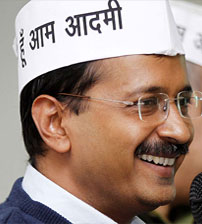
Aam Aadmi Party (translation: Common Man Party; abbreviated as AAP) is an Indian political party, formally launched on 26 November 2012. It came into existence following differences between the activists Arvind Kejriwal and Anna Hazare regarding whether or not to politicise the popular India Against Corruption movement that had been demanding a Jan Lokpal Bill since 2011. Hazare preferred that the movement should remain politically unaligned while Kejriwal felt the failure of the agitation route necessitated a direct political involvement. The AAP has led several protests since its formation. Among these was a campaign against an alleged nexus between government and private corporations relating to price rises for electricity and water in Delhi. Another saw the party demanding justice for victims of sexual harassment and rape, including the introduction of a stronger anti-rape law. The party's first electoral test was in the 2013 Delhi legislative assembly election, from which it emerged as the second-largest party, winning 28 of the 70 seats. With no party obtaining an overall majority, the AAP formed a minority government with conditional support from the Indian National Congress.

| Leader | J. Jayalalithaa |
| States/UT | Tamil Nadu |
| Founded | MG Ramachandran, 17 October 1972 |
| Headquarters | 1, 226, Avvai Shanmugam Salai, Roayapettah, Chennai – 600014 |
All India Anna Dravida Munnetra Kazhagam
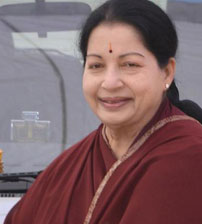
(lit. All India Anna Dravidian Progress Federation) is a state political party in the states of Tamil Nadu and Puducherry, India. It is currently in power in Tamil Nadu. It is a Dravidian party founded by M.G. Ramachandran (popularly known as MGR) in 1972 as a breakaway faction of the Dravida Munnetra Kazhagam (DMK). Since 1989, AIADMK is headed by J. Jayalalithaa, the current Chief Minister of Tamil Nadu. The party headquarters is in Royapettah, Chennai, and was gifted to the party in 1986 by its former leader Janaki Ramachandran, wife of MGR. The party headed its coalition to win the Tamil Nadu assembly election 6 times to head the Tamil Nadu Legislative Assembly.
The party was founded in 1972 as Anna Dravida Munnetra Kazhagam (ADMK) by MGR, a veteran Tamil film star and a popular politician, as a breakaway faction of the Dravida Munnetra Kazhagam (DMK) led by M. Karunanidhi, the then chief minister of Tamil Nadu, owing to serious differences between the two. Later, the party leaders prefixed All India (AI) tag before the party name. Since its inception, the relationship between the AIADMK and DMK has been marked with mutual contempt. MGR used his fan network for building the party cadre and estimates claim his party recruited more than a million members from the first two months of creation. The party tasted victory for the first time by winning the Dindigul parliamentary by-election in 1973 and also won the Coimbatore assembly by-election a year later. AIADMK grew close to the Congress by supporting the Emergency which occurred between 1975 and 1977. During Muthuramalinga Thevar death it was MGR who arrived first from chennai only then chief minister C.N. Annadurai arrived and got his appreciation. MGR created his own vote bank outside the DMK with mukulathoor community and their support continue to exist with Jayalalitha. MGR confident Somasundaram , Jayalalitha confident Sasikala and O.Panerselvam belong to Mukulathoor community.
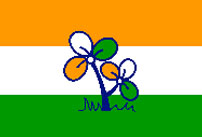
| Chairperson | Mamata Banerjee |
| States/UT | West Bengal |
| Founded | 1 January 1998 |
| Headquarters | 30B, Harish Chatterjee Street, Kolkata - 700 026 |
| Ideology | Populism
Socialism Secularism |

All India Trinamool Congress
After remaining with the INC for over 2 decades, Mamata Banerjee formed her own party, the "Trinamool Congress", which was registered with the Election Commission of India during mid-December, 1997. The Election Commission alloted to the party an exclusive symbol of Jora Ghas Phul. She entered into an alliance with the BJP in 1999.
In the 1998 Lok Sabha polls, TMC won 7 seats. In the next Lok Sabha election that was held in 1999, Trinamool Congress won 8 seats with BJP, thus increasing its tally by one. In 2000, TMC won the Kolkata Municipal Corporation Elections. In the 2001 Vidhan Sabha elections, TMC won 60 seats with Congress(I). In the 2004 Lok Sabha elections, TMC won 1 seat with Congress(I). In the 2006 Vidhan Sabha elections, TMC won 30 seats with Congress(I). In the West Bengal state assembly election, 2011, TMC won a majority of 184 seats (out of 294). Mamata Banerjee became the Chief Minister. TMC also has 5 MLAs in the Arunachal Pradesh Assembly,7 MLAs in the Manipur Assembly and 1 MLA in Assam and 1 MLA in Uttar Pradesh. TMC also have 1 MP in Rajya sabha from Jharkhand.
After the Big Bang reforms declared by UPA, TMC expressed it disappointment on the reforms. TMC threatened to withdraw support from UPA and gave 72hrs for withdrawing the Reforms. On 18 Sep, 2012 Evening Mamata Banarjee declared her party has withdrawn support from UPA and will run independently. TMC's Minister will be submitting resignation on Friday 21 Sept, 2012.
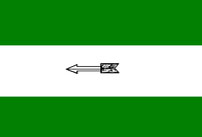
| Chairperson | Sharad Yadav |
| Leader in Lok Sabha | Sharad Yadav |
| States/UT | Bihar |
| Founded | 30 October 2003 |
| Headquarters | Patna, Bihar |
| Ideology | Integral humanism, Secularism Socialism |
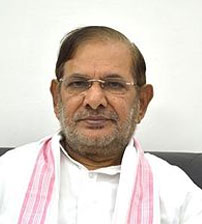
Janata Dal (United)
The Janata Dal (United)'s origins go back to before the 1999 General Elections. A faction led by then Karnataka Chief Minister J. H. Patel had lent support to the National Democratic Alliance, leading to the split in the Janata Dal leading to the formation of Janata Dal (Secular) under H. D. Deve Gowda, who wanted to remain equidistant from both national parties; and Janata Dal under Sharad Yadav. The Janata Dal (United) was formed with the merger of the Sharad Yadav faction of the Janata Dal, the Lokshakti Party and the Samata Party.On 30 October 2003, the Samata Party led by George Fernandes and Nitish Kumar merged with the Janata Dal.The merged entity was called Janata Dal (United) with the arrow symbol of Janata Dal (United) and the green and white flag of the Samata Party. The uniting force is believed to be common opposition to Rashtriya Janata Dal in Bihar especially after the RJD welcomed Samata Party rebels like Raghunath Jha into the party.
The JD(U) along with its alliance partner, the BJP defeated the RJD-led UPA government in Bihar in November 2005. The government is headed by JD(U) leader, Nitish Kumar. Since 16 June 2013 JD(U) and BJP no longer together.

| Leader | Ram Vilas Paswan |
| Parliamentary Chairperson | Chirag Paswan |
| Leader in Rajya Sabha | Ram Vilas Paswan |
| States/UT | Bihar |
| Founded | 28 November 2000 |
| Headquarters | 12, Janpath, New Delhi India 110 011 |
| Ideology | Secularism Socialism |

The Lok Janshakti Party is a state political party in the state Bihar, India. It is led by Ram Vilas Paswan, and presidented by Ahmed Ashfaq Karim. The party was formed in 2000 when Paswan split from Janata Dal (United). The party has considerable following amongst Dalits in Bihar. The 2004 Lok Sabha elections marked a major break-through for the party. It contested the polls in alliance with the Indian National Congress and the RJD and won four Lok Sabha seats. In the United Progressive Alliance-led government formed after the poll, Paswan became the minister of Steel and Fertilizers. In the 2005 Bihar assembly polls the party contested in alliance with the Congress and against the RJD and won 29 assembly seats.[citation needed]
After no group was able to form a coalition government, President's rule was imposed. After a few months Bihar's state assembly was dissolved.[citation needed] The elections returned NDA supported Nitish Kumar as Chief Minister.[citation needed] This has been a major setback for Paswan.[citation needed]
Among other developments, Jan Morcha the party founded by former Prime Minister Vishwanath Pratap Singh was merged with the LJP in March 2009. Jan Morcha president Ajeya Singh, son of Vishvanath Pratap Singh, was immediately appointed as a senior LJP functionary.[citation needed] On the more disastrous side LJP suffered a major jolt when, its entire Jharkhand Unit merged with the Congress before the 2009 elections citing that Paswan had ignored them.

| Chairperson | Raj Thackeray |
| Leader | Raj Thackeray |
| States/UT | Maharashtra |
| Founded | 9 March 2006 |
| Headquarters | 2nd Fl, Matoshri Towers, Shivaji Park, Mumbai |
| Ideology | Marathi nationalism |
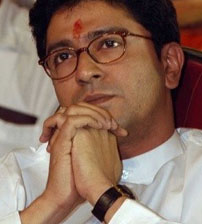
Maharashtra Navnirman Sena
Maharashtrian Nationalist party based in Maharashtra and operates on the motto of "Sons of the Soil". It was founded on 9 March 2006 in Mumbai by Raj Thackeray after he left the Shiv Sena due to differences with Uddhav Thackeray and sidelining in major decisions like distribution of election tickets.
The party was founded by Raj Thackeray, nephew of Late Shiv Sena leader Bal Thackeray. Raj Thackeray resigned from his uncle's party in January 2006 and announced his intention to start a new political party. The reason given by him for breaking away from the Shiv Sena was that the latter was "run by petty clerks" because of which it had "fallen from its former glory". Also Thackeray had a clear motive of building a political awareness for the development related issues of the state and giving them a center stage in national politics.
At the time of the party's foundation, Raj Thackeray stated that he does not want to have hostilities with his uncle who "was, is and always will be (his) mentor".
Although the MNS is a break-away group from the Shiv Sena, the party is still based on Marathi and Bhumiputra ideologies. When unveiling the party in an assembly at Shivaji Park he said, that everyone is anxious to see what will happen to Hindutva. When unveiling, he also said, "I shall elaborate on the party's stance on issues like Sons of Soil and Marathi, its agenda for development of Maharashtra and the significance of the party flag colours at the March 19 public meeting." MNS Got 13 seats in Vidhan Sabha. Raj's birthday is celebrated as Maharashtra's "Son of Soil" day [Citation needed]. Raj Thackeray considers himself an Indian nationalist (not just a regionalist) and claims that the Congress is two-faced. The party also recognises secularism as one of its core tenets.
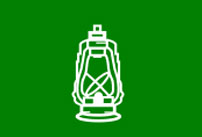
| Chairperson | Lalu Prasad Yadav |
| Leader in Lok Sabha | Lalu Prasad Yadav |
| Leader in Rajya Sabha | Ram Kripal Yadav |
| States/UT | Bihar, Jharkhand |
| Founded | 1997 |
| Headquarters | 13, V P House, Rafi Marg, New Delhi - 110001 |
| Ideology | Social conservatism, Secularism Socialism |
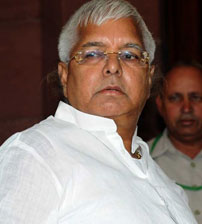
Rashtriya Janata Dal
The Rashtriya Janata Dal (RJD- "National People's Party") is a political party in India, based in the state of Bihar. The party was founded in 1997 by Lalu Prasad Yadav. The party came about as a result of Lalu Prasad Yadav, ex-president of Janata Dal, being evicted by Sharad Yadav,[citation needed] the then president, on corruption charges ($250 million) over the farm support funds. The mass base of the party has traditionally been Yadavs and Muslims, two large and relatively politically active segments of Bihar's population. In 2008, RJD received the status of recognized national level party following its performance in north-eastern states. RJD was derecognised as a national party on 30 July 2010.
In the March 1998 national elections, RJD won 17 Lok Sabha seats from Bihar but failed to make significant headway in any other state. Later that year, the party formed an alliance with Mulayam Singh Yadav's Samajwadi Party as an anti-Bharatiya Janata Party secular coalition but the coalition failed in garnering any widespread support.
In the October 1999 elections, RJD fought the election in alliance with Congress but lost 10 Lok Sabha seats including the seat of Lalu Prasad Yadav. In the 2000 state elections, however, it performed unexpectedly well - winning a majority of the seats in the state assembly. Continuing its upswing in electoral fortunes, the party won 21 Lok Sabha seats in the 2004 elections that it fought in alliance with Congress. The pendulum swung back, however, next year and the party had to relinquish power in the 2005 state elections after winning only 75 seats. In the state elections held later that year - as a result of no party being able to form a government - RJD continued its downward slide losing 21 seats.
In the general election of April–May 2009, the RJD had a disastrous result, dropping down to just 4 seats, all of them in Bihar.
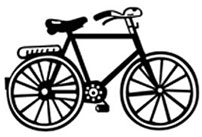
| Chairperson | Mulayam Singh Yadav |
| Leader in Lok Sabha | Mulayam Singh Yadav |
| Secretary-General | Kiranmoy Nanda |
| States/UT | Uttar Pradesh |
| Founded | October 4, 1992 |
| Headquarters | 18 Copernicus Lane, New Delhi |
| Ideology | Populism Democratic socialism Secularism Social conservatism |
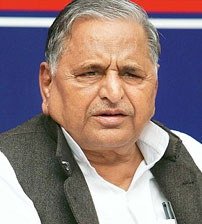
Samajwadi Party
The Samajwadi Party primarily based in Uttar Pradesh State. Its support is largely based on OBCs (Other Backward Castes), particularly Mulayam Singh Yadav's own Yadav caste. It has contested Lok Sabha and State Assembly elections around the country, though its successes have been mainly in Uttar Pradesh. In the assembly election in Madhya Pradesh in 2003, the Samajwadi Party gained 7 seats, making it the third largest party in the state. When its candidate won the by-election of Lanji (Balaghat) in 2007, its total tally reached 8.
In the 15th Lok Sabha, it currently has 22 members, making it the third largest party in that house.
In 2005, former Karnataka Chief Minister Bangarappa resigned from the BJP to join the Samajwadi Party. He successfully held his Lok Sabha seat (representing Shimoga) on the Samajwadi ticket.
In the 2007 Uttar Pradesh legislative election, the SP won only 96 seats as compared to 146 in the previous election. As a result, Chief Minister Mulayam Singh Yadav had to resign, with his rival Mayawati, leader of the BSP (which won a majority of 207 seats), sworn in as the Chief Minister.
In the 2012 legislative assembly elections of Uttar Pradesh, SP registered a landslide victory with a clear majority in the House, thus enabling it to form the Government in the state. This was expected to be the fifth term of Mulayam Singh Yadav as Chief Minister of state, but he surprised everyone by selecting his son, Akhilesh Yadav, to be the new chief minister (the youngest ever). It became official on March 15. It was also the first time that SP was head of the UP government for a full term of 5 years.

| Leader | Shibu Soren |
| States/UT | Jharkhand |
| Founded | 2000 |
| Headquarters | Bariatu Road, Ranchi-834008 |
| Ideology | Regionalism |
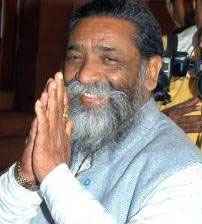
Jharkhand Mukti Morcha
Jharkhand Mukti Morcha : is a state political party in the state Jharkhand, India. It has a strength of 2 in the 15th Lok Sabha. Shibu Soren is the president of JMM. JMM is also an influential political party in neighbouring states of Orissa, West Bengal.
The party was officially created on the birthday of Birsa Munda, the 19th century tribal warrior of Jharkhand, who fought against the British rule in present-day Jharkhand. The State of Jharkhand also came into existence on Birsa Munda's birthday in 2000.
At the 2005 Jharkhand state assembly elections, the JMM took second place and received 17 of the 81 seats. It supports the government of Independent Chief Minister Madhu Koda which was formed in 2006. It continues to be an active part of the United Progressive Alliance. It has had its fair share of controvoersies when its MPs were involved in the bribery scam during the Rao Government and the fiasco in early 2005 about the Chief Minister of Jharkhand. Recently, one of its MPs was assassinated by Naxalites. After the loss to Bangladesh in 2007 Cricket World Cup, the house that Dhoni was constructing in his home-town Ranchi was vandalized and damaged by political activists of JMM
Currently, it has left the alliance with Bharatiya Janata Party to form the government in Jharkhand. Presently. Hemant Soren is the CM of Jharkhand. Sibu Soren is the party President of Jharkhand Mukti Morcha and is MP from Dumka. C.P.Singh is the Speaker of Jharkhand Vidhan Sabha from BJP Party.

| Chairperson | Udhav Thackeray |
| Leader | Udhav Thackeray |
| States/UT | Maharashtra |
| Founder | Bal Thackeray |
| Founded | 19 June 1966 |
| Headquarters | Shivsena Bhavan, Ram Ganesh Gadkari Chowk, Dadar, Mumbai-400 028 |
| Ideology | Hindutva Marathi nationalism |
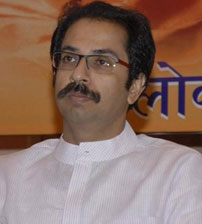
Shiv Sena
Shiv Sena, is a Marathi chauvinistic and Hindu nationalist political organisation in India founded on 19 June 1966 by political cartoonist Bal Thackeray. The party originally emerged from a movement in Mumbai demanding preferential treatment for Maharashtrians over migrants to the city. The party has a powerful hold over the Bollywood film industry. It is currently headed by Thackeray's son, Uddhav Thackeray. Members of Shiv Sena are referred to as Shiv Sainiks. The group has been seen by some as a terror group and has been linked directly with the 1970 communal violence in Bhiwandi, 1984 Bhiwandi riots and violence in the 1992-1993 Bombay riots.
Although the party's primary base is still in Maharashtra, it has tried to expand to a pan-Indian base. In the 1970s, it gradually moved from solely advocating a pro-Marathi ideology, to one supporting a broader Hindu nationalist agenda, as it aligned itself with the Bharatiya Janata Party. It is commonly called an "extremist and "chauvinist" party, as well as a "Hindu extremist" and fascist party. The party has taken part in numerous Maharashtra state governments at several times and was a coalition partner in the National Democratic Alliance cabinet that ruled India between 1998–2004.
The Shiv Sena-BJP combine won the 1995 Maharasthra state elections. After assuming state government power, Shiv Sena began to redress its organisation. A 'Shivsena Rajyapramukh Parishad' convention was held in Mumbai six months after the election. At the meeting a large number of local party leaders and representatives of various wings of the party participated. The meeting filled the function of reorienting the party organisation to adapt to the new tasks of being a party in government.It renamed Bombay as Mumbai
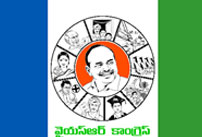
| Leader | Y. S. Jaganmohan Reddy |
| Leader in Lok Sabha | Y. S. Jaganmohan Reddy |
| States/UT | Andhra Pradesh |
| Founded | 2009 |
| Headquarters | Hyderabad, Andhra Pradesh India |
| Ideology | Populism Democratic socialism Secularism Social conservatism |

YSR Congress Party
After the death of the then-incumbent Chief Minister Y. S. Rajashekhara Reddy in a helicopter crash in September 2009, his son Jaganmohan Reddy, the incumbent MP from Kadapa, started an Odarpu Yatra (condolence tour) across Andhra Pradesh, supposedly to console the families of those who had committed suicide or died of shock after the death of his father. This was however not supported by the Congress leadership. Congress President Sonia Gandhi claimed the rising volatile situation in the state regarding the Telangana issue as the main reason for opposing the "Odarpu Yatra". Defying the Congress High Command's order to call off the tour, Jagan went ahead with the first leg of the "Odarpu Yatra" in the West Godavari and Khammam districts from in April 2010.
Meanwhile, Jagan-owned Sakshi TV news channel and Sakshi newspaper, had been continuously criticising the new Chief Minister Konijeti Rosaiah and the Congress leadership at New Delhi. In a special programme on Sakshi TV to mark the 125th anniversary celebrations of the Congress party, a voice-over made remarks on Sonia Gandhi and the Prime Minister Manmohan Singh on the "current state of affairs" in the State, which invited anger and protests from the Congress loyalists and increased the gap and friction between Jagan and the Congress loyalists.[7] The channel later deleted those remarks in a re-telecast.
 |
 |
 |
 |
 |
 |
| View Gallery | |

INDIA, being the largest democracy, attracts worldwide attention in every aspect. Be it it's culture or the people. Forthcoming General Elections 2014, especially, has the world's eyes on it. Keeping in mind the immense interest generated, we at "Tourism Development Corporation" are providing packages under our especially designed campaign - "Election Tourism India 2014". The visitors will have an opportunity to explore our vibrant democracy accommodating different cultures, the workings of various national/state political parties and can be part of their election rallies too. I look forward to welcoming all.